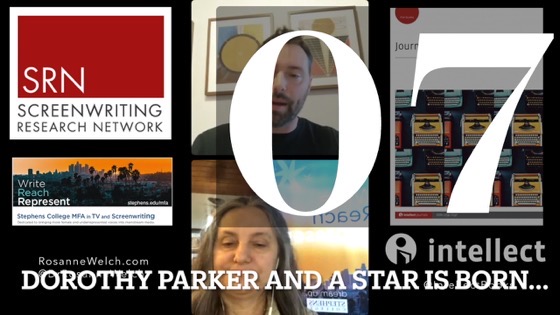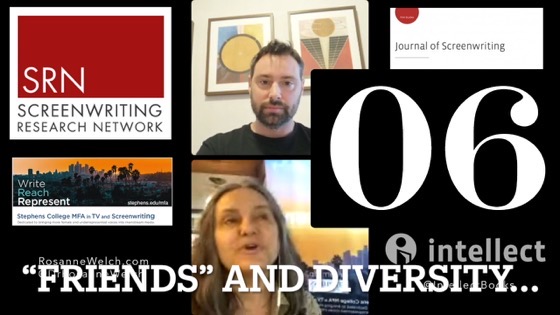I recently presented a talk on Torchwood (Why Torchwood Still Matters) where I highlighted a few ways in which the show (airing from 2006 to 2011) came up with progressive and innovative ideas that are being used by other franchises today.
I always enjoy attending the SD (San Diego) WhoCon because the audiences are so well-informed on the Whoniverse and Whovians love Captain Jack and the crew that made this spinoff program so engaging.

Transcript:
So I think what was interesting is we got a chance to go to this academic conference which was Investigating Torchwood and I heard all kinds of interesting things – some of which helped me put this together – ideas about the show that I didn’t think of and so then we published the piece. So this is why I’m interested in thinking about Torchwood and why I think it should have gone longer than four seasons although miracle day killed it which is all another conversation – but it was a show that was a work in progress with a lot of new ideas and some of those ideas have slowly seeded into the regular tv that we’re watching now and so I think it’s really interesting to look at these original ideas. They were being very innovative and I like that and I want to see more of that and I just happen to like this meme because it’s true one of the things that of course Jack – Captain Jack – brought to us was looking at the world in a bigger way right and then all the ideas of who he could be and who could love and who the other characters could be with. They were relatively new if you think about it and it’s the thing that we teach in my program – representation matters. We have to pay attention to the things we’re seeing because TV is the thing that comes into your home for free or pay the cable bill if your parents pay it right – but we’re getting to see things that you wouldn’t see if you didn’t want to pay the money at a movie theater right? So the tv is really like so interesting because who knows what we’re learning from it.
Watch this entire presentation
Podcast: Play in new window | Download
Subscribe: RSS
![03 Represenation in Torchwood from Why Torchwood Still Matters with Dr. Rosanne Welch, San Diego Who Con 2021 [Video]](https://rosannewelch.com/wp-content/uploads/2022/04/rmw-whocon-2021-torchwood-03.jpg)



![01 Introduction from When Men Forget Women: The Many Ways Male Screenwriters Fail to Mention their Female Colleagues [Video]](https://rosannewelch.com/wp-content/uploads/2022/04/rmw-scms-2021-01-1-1200x675.jpg)
![01 Introduciton from When Men Forget Women: The Many Ways Male Screenwriters Fail to Mention their Female Colleagues [Video]](https://rosannewelch.com/wp-content/uploads/2022/04/rmw-scms-2021-01.jpg)
![02 My Interest In Torchwood from Why Torchwood Still Matters with Dr. Rosanne Welch, San Diego Who Con 2021 [Video]](https://rosannewelch.com/wp-content/uploads/2022/04/rmw-whocon-2021-torchwood-02.jpg)

![01 Introduction from Why Torchwood Still Matters with Dr. Rosanne Welch (Complete), San Diego Who Con 2021 [Video]](https://rosannewelch.com/wp-content/uploads/2022/04/rmw-whocon-2021-torchwood-01.jpg)
![05 Interesting Women Screenwriters? from In Conversation with Dr. Rosanne Welch and Intellect Books [Video]](https://rosannewelch.com/wp-content/uploads/2022/04/rmw-intellect-05.jpg)
![04 Who Inspired You? from In Conversation with Dr. Rosanne Welch and Intellect Books [Video]](https://rosannewelch.com/wp-content/uploads/2022/03/rmw-intellect-04.jpg)
![03 Unreliable Narrators from In Conversation with Dr. Rosanne Welch and Intellect Books [Video]](https://rosannewelch.com/wp-content/uploads/2022/03/rmw-intellect-03.jpg)